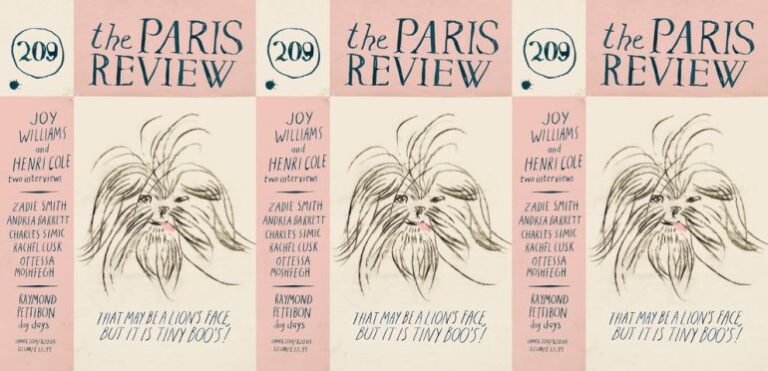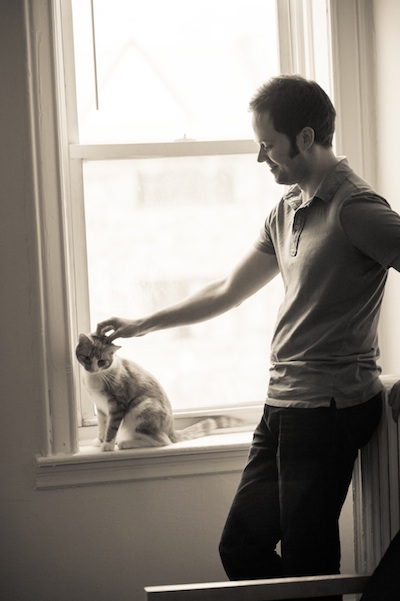Fact, Fiction, or Facebook?
Like Whitman, “I am large, I contain multitudes.” And in my case, the multitudes are on Facebook.
I have eight different profiles to my name—or rather, not to my name. The characters in my harem—born of inside jokes, fictional stories, collaborative projects, and, of course, procrastination—are each their own unique and special flower, complete with birthdays, profile pictures, likes, friends, rhetorical tics, and, of course, Gmail addresses.
There’s Harry F.,* a lecherous amateur handyman from Traverse City who likes to make jokes about his “tool.” There’s Valerie T, Harry’s spacey second cousin. There’s Ellen P., a kind of bizarro-world version of my mother—always quick to “like” my posts, bursting with positive comments.
And those are just the humans. There’s also a star-nosed mole who shares my ex-girlfriend’s birthday; a guinea pig wearing a clown nose; a tiny plastic tyrannosaurus who constantly complains that his arms are too short.
All this is to say that I didn’t think twice when I instructed the students in my fiction writing workshop to create Facebook profiles for the protagonists of their stories. If it worked for me, why wouldn’t it work for them? The goal of the assignment, I explained, was to get to know these characters from the inside out—to explore not only what they’d say but how they’d say it, and to whom; to imagine not only what they looked like but what profile pictures they’d choose.
I was so optimistic, in fact, that I had all 18 students create their fake profiles at once.
During class.
From the same IP address.
That was my second mistake.
***
My first mistake was asking students to write their first stories about a “Little-Big Moment,” defined on my assignment sheet as “a specific, isolated incident that causes a character to experience a larger perspectival shift.”
A Little-Big Moment, I warned, is probably not an obvious, Big-Big Moment (e.g. a wedding, the death of a loved one, a Bar Mitzvah). The meaning in these moments comes prepackaged (e.g., Bar Mitzvah = becoming a man). But Little-Big Moments sneak up on you. Their reverberations are rarely anticipated. Think of Sammy, having just quit his job at the eponymous supermarket at the end of Updike’s A&P: “And my stomach kind of fell as I felt how hard the world was going to be to me hereafter.” Or Snot, the quiet heroine of ZZ Packer’s Brownies, on the school bus coming home from Camp Crescendo: “And [I] suddenly knew there was something mean in the world that I could not stop.”
A number of students lingered after class to ask what turned out to be the same exact question about the assignment:
“Is my story allowed to be…true?”
The answer to this question is stated in my syllabus, right next to the policy about using “the speaker,” rather than “the author,” when referring to the “I” in a poem or story:
In this class, “true” is about craft, not content. It’s about writing characters and situations that feel true, which may or may not reflect their correlation to actual people or events.
“In other words,” I explained to my students, “I don’t care if it’s true. I care if it’s good.”
I maintain this policy even though “true” and “good” can sometimes seem mutually exclusive, especially in undergraduate creative writing courses. Many students, if given the opportunity, will write stories in which the “I” is recognizable as the author, except better looking and with a cooler-sounding name, like “Blaze” or “Calder.” What passes for motivation is often the fact that these Blazes and Calders “just want to feel something.” Perhaps as a result, what passes for plot is a whole lot of sitting there thinking.
Or, in the case of my Little-Big Moment assignment, a whole lot of smoking cigarettes and thinking, punctuated by the sudden appearance of a small child to offer a profound-yet-innocent insight, resulting in the obligatory perspectival shift: I just want to feel something! Blaze realized, stubbing out her cigarette. The end.
***
A caveat to all that condescension: I am the pot calling the kettle black. I myself am incapable of writing about anything except, well, myself. I am not interested in plot; I am interested in the nuances of my own emotional response. This is why I quit writing fiction and became a poet.
Which perhaps leaves me somewhat underqualified to teach fiction writing—or at least, unfortunately prone to mistakes like the Little-Big Moment. The Facebook assignment was conceived to correct this mistake, to force my students to distance themselves from themselves and refocus on character and craft.
Alas, Facebook was on to us:
It looks like your account might not be real. Facebook is a community where people share and interact using their real identities.
Facebook does not allow accounts that:
Pretend to be someone else
Use a fake name
Don’t represent a real person
Asked to verify their fake identities, my students were understandably wary:
“Do I have to give them my phone number?”
“Can we just give them your phone number?”
“Is this even legal?”
Urp. I had no idea.
“Abort! Abort!” I cried, suddenly terrified that I’d condemned my students to expensive legal battles, possible prison time, or, worse—getting kicked off Facebook.
***
As it turns out, only that last one is actually a risk. Though it violates Facebook’s terms of service, creating a fake profile is not actually a crime unless you’re using it for criminal purposes (fraud, stalking, and so on).
Barring these more nefarious activities, the main issue with fake profiles seems to be that advertisers want to target actual people, not automated bots, as bots are notoriously immune to ads for bot-stuff they don’t need.
OK, fair enough. But it seems clear to me that a good number of fake profiles—fictional characters, alteregos, and of course, dogs—are manned by people. If the ad-bots are trying to sell Quidditch equipment, what difference does it make if they target the Potterphile instead of Harry himself?
Or, to reimagine the old New Yorker cartoon, “On the Internet, everybody knows you’re not really a dog—you’re a dog owner likely to purchase dog-related products!”
***
Facebook is a community where people share and interact using their real identities.
Was it just me, or did that message sound kind of…snotty?
The more I thought about it, the more it made sense that Facebook would feel threatened by fake profiles. In a way, my assignment was redundant; my students are already fluent and prolific in the art of assembling characters via status updates, profile pictures, likes, and comments.
But asking them to pay closer attention to this process increases the likelihood that they will realize—and internalize—the essentially fictional nature of all online identities. This is Facebook’s most crucial and sustaining illusion: that our profiles are our “true” selves.
And perhaps this illusion is partially to blame for that disastrous Little-Big Moment assignment.
Because on Facebook, “true” = “good.” What else would explain so many Instagrammed breakfasts? Those pictures aren’t intended to flesh out a character, to indicate the kind of person who would photograph his or her meals. Those fried eggs aren’t signs or symbols. They don’t even foreshadow lunch. These are breakfasts for breakfasts’ sake—they are there because they happened, and are therefore important, and should therefore be relevant to us, the devoted readers of the longest, boringest story ever to find an audience.
***
In other words, it’s not my students’ fault. In Facebook terms, all Little moments are Big—which makes them all little. Imagine Updike’s Sammy, updating his status:
Quit my job to impress some girls in front of my asshole manager. #FML
After the instantaneous, inevitable stream of likes and comments, would he still have felt the hardness of the world?
Or would the fleeting buzz of virtual vindication leave him “just wanting to feel something?”
***
But perhaps there is some benefit to all this haphazard character-building. And perhaps it is the same benefit the optimists believe to be derived from the study of writing and literature—even more so now, as it becomes increasingly necessary to take responsibility for our perpetual authorship of ourselves.
This is where Facebook so often fails—and where it could potentially succeed. Like many literary texts, Facebook crystallizes experience, rendering static the elusive, ephemeral moments of day-to-day life we might otherwise let slip by. The key is simply to remember that we are reading, and writing, a text. That we authors are making particular (if often subconscious) rhetorical decisions, which have the potential to reveal not only plot, but character. That “real identities” only exist in real life, offline, off the page. That to the ad-bots, we are merely caricatures, drawn from our monetizable interests. That “true” does not always equal “good.”
Facebook doesn’t want us to remember this stuff.
But Blaze and Calder do.
*names have been changed to protect fake identities


